
Clementina Acedo
Director General of Webster University Geneva

Salma Al Nims
Secretary-General of the Jordanian National Commission for Women
Salma Al Nims holds a PhD. in Development Planning (2004) and a MSc. in Sustainable Development (1998) from University College London. in 2014 she was appointed to her current position in order to further its mission to transform the national development agenda to ensure the full and equal participation of men and women in the development process, as a means to achieving development as well as gender equality. She is member of the Advisory Group to the High-Level Task Force on Financing for Gender Equality for the United Nations. She received the Said Foundation Outstanding Achievement Prize (2019), which is awarded to individuals judged to have contributed significantly to the development of the region.

Anna Therese Day
Award-winning international reporter and filmmaker

Roueida El Hage
Office of the High Commissioner for Human Rights: Regional Representative for MENA
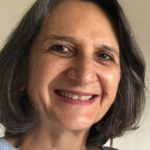
Hoda Elsadda
Professor of English and Comparative Literature at Cairo University & Co-Founder and Chair of the Board of the Women and Memory Forum
Hoda Elsadda is Professor of English and Comparative Literature at Cairo University, a feminist and an activist for women’s rights, and co-founder and currently Chair of the Board of the Women and Memory Forum (www.wmf.org.eg). She previously held a Chair in the Study of the Contemporary Arab World at Manchester University, and was Co-Director of the Centre for the Advanced Study of the Arab World in the UK. She was Carnegie Visiting Scholar at Georgetown University in 2014-2015, and Visiting Scholar at the Asfari Institute at the American University of Beirut in 2017-2018. She is a member of the Advisory Board of the Journal of Middle East Women’s Studies JMEWS (2015-); member of the editorial board of Hawwa: Journal of Women of the Middle East and the Islamic World (2017-); member of the International Advisory Board of the Asfari Institute at the American University in Beirut (2017-); member of the International Advisory Board of al-Raida (2011-); member of the Board of Trustees of the Sawiris Cultural Award (2004-); and member of the Board of the Arab Reform Initiative, ARI (2015-). Her research interests are in the areas of gender studies, comparative literature and oral narratives. She is author of Gender, Nation and the Arabic Novel: Egypt: 1892-2008 (Edinburgh University Press and Syracuse University Press, 2012).
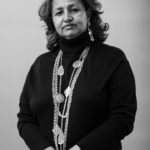
Hibaaq Osman El-Karama
Founder of Karama, MENA NGO
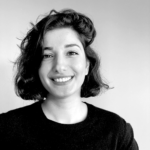
Marwa Fatafta
MENA Policy Manager at Access Now & Advisory Board Member of 7amleh & Policy Analyst at Al-Shabaka, The Palestinian Policy Network
Marwa Fatafta leads Access Now’s work on digital rights in the Middle East and North Africa region as the MENA Policy Manager. She is an advisory board member of the Palestinian digital rights organization 7amleh, and a policy analyst at Al-Shabaka, The Palestinian Policy Network.
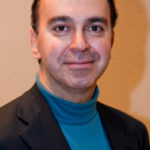
Jubin M. Goodarzi
Jubin M. Goodarzi, Associate Professor and Deputy Head of the International Relations Department at Webster University Geneva
Jubin M. Goodarzi received a B.A. in International Studies from the American University, a M.A. in Arab Studies from Georgetown University, and a Ph. D in International Relations from the London School of Economics (LSE). Prior to joining Webster University, he was a consultant and political adviser on Middle Eastern affairs for the United Nations High Commissioner for Refugees (UNHCR) in Geneva. He has also worked with a number of US and UK research institutes and foundations, including the Center for Strategic and International Studies (CSIS) in Washington, DC, the Royal Institute of International Affairs (Chatham House) in London, and the Ford Foundation in New York. He is author of Syria and Iran: Diplomatic Alliance and Power Politics in the Middle East, and numerous articles and book reviews on the international relations of the Middle East.
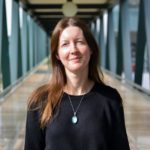
Sarah Grosso
Webster University, Faculty, Researcher and Lead Professor, MA in Communications Management; Independent Consultant, Gender, Research & Communication

Hafsa Halawa
Non-Resident Scholar at the Middle East Institute, Washington, D.C.
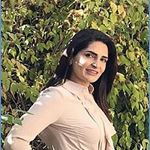
Lama Jbarah
President of International-Lawyers.Org

Hind Kabawat
Hind Kabawat Deputy Head of the Syrian Negotiation Commission in Geneva
Hind Kabawat is Deputy Head of the Syrian Negotiation Commission in Geneva. She is Director and adjunct professor of Interfaith Peacebuilding at George Mason University’s Center for World Religions, Diplomacy, and Conflict Resolution and the Intereligious Platform for Dialogue and Cooperation. She was a Visitor Fellow at Program on Negotiation at Harvard Law School (PON) (2018-2019). She is a Board member of Tastakel, a women’s organization dedicated to using non-violence and dialogue to address the ongoing conflict in Syria. Tastakel annually runs five education centers in southern Turkey and inside Syria teaching local women mediation and peacebuilding. She is currently member of the International Dialogue Centre (KAICIID) and Governing Board member for Interpeace Organization, Geneva.

Pierre Krähenbühl
Humanitarian leader and independent activist
Pierre Krähenbühl received his B.A. and M.A. in International Relations from the Graduate Institute, Geneva. He served as Commissioner General for the United Nations Relief and Works Agency for Palestine Refugees in the Near East (UNRWA) from 2014 to 2019. From 2002 to 2014 he served as Director of Operations at the International Committee of the Red Cross (ICRC). During his has 30 years’ experience in humanitarian action he oversaw aid interventions in over 80 countries worldwide. Among his various field assignments were El Salvador, Peru, Afghanistan, Bosnia & Herzegovina, and Palestine. He is currently engaged in partnerships with foundations and academic institutions focused on conflict prevention & resolution, as well as climate change.
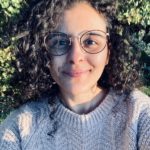
Asma Khalifa
Research Fellow / Doctoral Student at the German Institute for Global Area Studies (GIGA Institute of Middle East Studies, Hamburg

Khawla Ksiksi
Co-Founder of the collective “Voices of Tunisian Black Women”
Khawla Ksiksi is a Tunisian jurist, advocate for environmental justice and activist who is engaged in feminist, anti-racist, intersectional activism. After the Jasmine Revolution (2011), she joined Mnemty (My Dream), an association that fights against all forms of discrimination, especially racial, and promotes unity, peace, and justice. She is a human rights expert and member of a radical feminist movement called Falgatna (We’re Fed Up), which defends women’s rights and lobbies against sexual violence in Tunisia. In January 2020 she co-founded the collective “Voices of Black Tunisian Women” which offers them a safe space for self-expression. It is the first initiative that addresses issues affecting black women, gives voice to their experiences and promotes research about their social conditions.
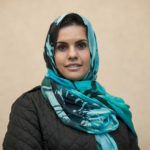
Zahra Langhi
Co-Founder & CEO, Libyan Women’s Platform for Peace (LWPP)
Zahra Langhi heads Women’s Platform for Peace (LWPP), a socio-political movement focused on peacebuilding, inclusivity, and gender equality. She has participated in formal peace negotiations and political dialogue in Libya as well as UN sponsored peace talks. The Guardian recognized her as one of ‘Seven Women to Watch in Global Politics’ (2014). Two years later she was named as one of the 23 most inspiring women fighting for women by the Charter of Compassion led by Karen Armstrong. In 2018 the Rockefeller Foundation named her as one of five women leaders introducing transformative change around the world. In 2020 she was nominated by ATHENA40 as one of 40 most forward-thinking women who create positive change in their societies and also encourage women and girls to thrive.

Carla Haddad Mardini
Director, Public Partnerships Division at UNICEF
Carla Haddad Mardini assumed the post of Director, Public Partnerships Division at UNICEF in January 2018. She coordinates the organization’s public resource mobilization multi-lateral engagement in the intergovernmental space. Prior to joining UNICEF, she was the Head of Resource Mobilization at the International Committee of the Red Cross (ICRC) headquartered in Geneva. She also held several field positions in the Middle East and Africa. She holds a B.A. in Philosophy and Political Science from the American University of Beirut, an M.A. in Comparative Literature from Dartmouth College, and a Master’s Degree in International Relations from the Fletcher School of Law and Diplomacy at Tufts University.

Hayat Mirshad
Co-Founder and Co-Director at FE-MALE NGO

Fouzi Mourji
Professor of Econometrics at l’Université Hassan II, Casablanca

Asma Ramadan Mustafa
Global Teacher Award, 2020, Ministry of Education, Gaza, Palestine
Asma Ramadan Mustafa has taught English as a foreign language in Gaza for the past 13 years . She is a member of the Digital Empowerment in Education Team in the Ministry of Education and Trainer of the Virtual Classrooms course in Gaza. She is a National Geographic Certified Educator, Microsoft Innovative Expert Educator 2020, Google Certified Educator, Apple Certified Teacher and Wakelet Ambassador in Palestine
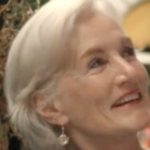
Maryvelma O'Neil
Senior Research Fellow, Webster University and Founder of the MENA Center for Peace and Development
Maryvelma Smith O’Neil received her M.A. from Tulane University and her D. Phil from Oxford University in the history of art. She is a Senior Member of St. Hilda’s College. She has taught, lectured, and published on cultural heritage, politics, and historic preservation. In 2012 she founded ARCH Jerusalem (https://www.archjerusalem.org/), a Swiss-accredited NGO, that aims to protect vulnerable cultural heritage in East Jerusalem. She was selected to participate in two training sessions on “Objects, Places, and the Digital Humanities” at the National Humanities Center in Research Triangle Park, North Carolina (2017-2018) and was awarded a PARC NEH Fellowship (2018-2019). She directed The Mughrabi Quarter Virtual Archive (http://www.mughrabiquarter.info/ — tablet and mobile versions soon) and is now engaged in The Virtual Illés Initiative: a fully searchable, interactive digital map and spatially linked database for Jerusalem’s histories, as well as a digital museology installation for global audiences.
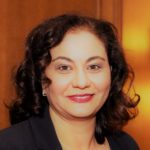
Rascha Osman
Deputy Head of the MENA Division at the Swiss Federal Department of Foreign Affairs

Francis Piccand
Head of the the Think-Tank Middle-East and North Africa at the Swiss Ministry of Foreign Affairs
Francis Piccand received his Ph. D, from the University of Berne. Prior to assuming responsibility for the Think-Tank Middle East and North Africa at the Swiss Ministry of Foreign Affairs, he served as a delegate for the International Committee of the Red Cross (ICRC). He teaches International Relations at Webster University (Geneva) and at the Geneva School of Diplomacy. He is a member of the following: Swiss / Swiss-based organizations and their respective activities in Israel/Palestine (Swisspeace), Chairman of the CRES Foundation (Centre de Recherches Entreprises et Sociétés), member of the Scientific Counsel at the “Geneva School of Governance” and Steering Committee of the Webster University MENA Center for Peace and Development.
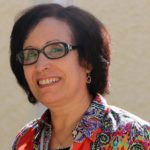
Fatima Sadiqi
Professor of Linguistics and Gender Studies at University of Fez, Morocco
Fatima Sadiqi is Professor of Linguistics and Gender Studies (University of Fez, Morocco); her work focuses on women’s and gender issues in modern North Africa, the Middle East, and the Mediterranean world. In June 2018, she was elected President of the Association for Middle East Women’s Studies – AMEWS, the first Maghrebian to be elected to this post. She is author and editor of numerous volumes and journal issues, including Women, Gender and Language (Brill 2003), Women’s Activism and the Public Sphere: Local/Global Linkages (Journal of Middle East Women’s Studies 2006), Women and Knowledge in the Mediterranean (Routledge 2013), Moroccan Feminist Discourses (Palgrave Macmillan 2014), and Women’s Movements in the Post-“Arab Spring” North Africa (2016). She is currently finalizing a book on the intersection between violent extremism and women’s rights in North Africa and embarking on new research on global contestations of women’conducting research . She is currently finalizing a book on Daesh Ideology and Women’s Rights in North Africa. Fatima Sadiqi is also a public speaker in many languages and a member of many national and international scholarly and policy-making boards. Her work has been supported by numerous prestigious awards and fellowships from Harvard University, The Woodrow Wilson Center, the Rockefeller Foundation’s Bellagio Center, Fulbright, and currently by the ZIF center (Bielefeld University, Germany) where she works as a research fellow.

René Schegg
Head of Development & Alumni and Research at Webster University Geneva and Director of the ARCH Jerusalem Scholars' Support Project
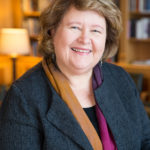
Aili Mari Tripp
Wangari Maathai Professor of Political Science and Gender and Women’s Studies at the University of Wisconsin-Madison
Aili Mari Tripp is the Wangari Maathai Professor of Political Science and Gender and Women’s Studies at the University of Wisconsin-Madison. Currently she is a fellow at the Wilson Center in Washington, D.C., where she is working on a project on women’s rights and authoritarianism in Africa. Tripp’s research has focused on women and politics and women’s movements in Africa, including the Maghreb, women and peacebuilding, transnational feminism, African politics, and on the informal economy in Africa. She has conducted extensive research for over 30 years throughout Africa. Her most recent book is Seeking Legitimacy: Why Arab Autocrats Adopt Women’s Rights (2019). She is also author of several award winning books, including Women and Power in Postconflict Africa (2015), Museveni’s Uganda: Paradoxes of Power in a Hybrid Regime (2010), African Women’s Movements: Transforming Political Landscapes (2009) with Isabel Casimiro, Joy Kwesiga, and Alice Mungwa, and Women and Politics in Uganda (2000). She has been president of the African Studies Association and vice president of the American Political Science Association and currently is an associate editor of the American Political Science Review.
